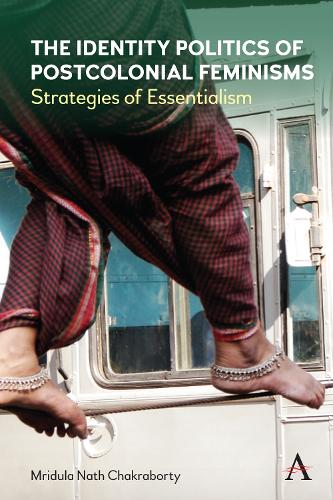
The Identity Politics of Postcolonial Feminism: Strategies of Essentialism
(Hardback)
Publishing Details
The Identity Politics of Postcolonial Feminism: Strategies of Essentialism
By (Author) Mridula Nath Chakraborty
Anthem Press
Anthem Press
10th March 2026
United Kingdom
Classifications
Professional and Scholarly
Non Fiction
Philosophy: epistemology and theory of knowledge
Feminism and feminist theory
305
Physical Properties
Hardback
250
Width 153mm, Height 229mm, Spine 26mm
454g
Description
The rise of identity politics in post-Civil Rights Anglo-North America was marked by intense debate in the university and public space about the valency of competing identities in the new America that was taking shape due to changing migration policies. The historically unresolved tension between Black and White constituencies was complicated further due to the entry of bodies from the newly independent, decolonized third world nations who did not share the same racial and cultural lineage. At the same time, feminism permeated every sphere of intellectual and social life, giving rise to second-wave questions around who constituted the true subject of feminism. Postcolonial feminists interrogated the idea of an essentialised 'Woman' who was implicated in the twin strands of race and nation that identified mainstream feminisms. The Identity Politics of Postcolonial Feminism traces the evolution of postcolonial feminism from its situated, located, 'third world' avatar to its current free-floating reincarnation as transnational feminism in the age of mobility and identity.
Author Bio
Mridula Nath Chakraborty is a literary critic, postcolonial feminist theorist and cultural studies scholar.
